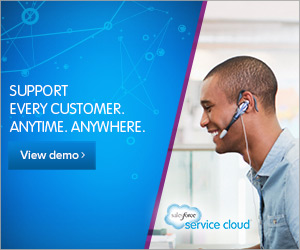
Image by Gary Hayes / Flickr
If you’ve heard about cloud computing recently, you’re not alone. Many tech companies, from computer manufacturers to cell service providers, have been talking about cloud computing. Unfortunately, many people still aren’t clear regarding exactly what cloud computing is and who should be using it. If you’re one of those people, consider the following:
Cloud Computing for Individuals
Cloud computing for individuals offers a variety of benefits if you need to either transfer large amounts of data or if you want to have access to your data remotely. An example of cloud computing for individuals would be where you need to access important documents from your work PC on your home PC or smartphone. By uploading your work documents to a cloud services provider, you could then simply visit a web site and have the ability to view, edit and download your work documents from home. In the past, individuals who wanted to remotely access documents had to set up complicated and limited direct connections between PCs, but by using cloud computing, they can now use a single service to upload and download files to and from.
Cloud Computing for Small Businesses
Small businesses can benefit from cloud computing in a variety of ways as well. In addition to having the ability to access files remotely, small businesses can cut down on costs by using cloud computing. For instance, most small businesses that accept direct payments are required to pay for and maintain expensive and cumbersome hardware and software packages that remain in-house. By using a cloud services provider, a small business can accept payments through applications on the web, ultimately removing the need for renting or purchasing processing equipment and software. In addition, most small businesses don’t have a large budget for IT personnel, so by using cloud services likes the ones at QTS, the service provider takes care of all server and equipment maintenance and tech support.
Cloud Computing for Large Businesses
If you run a large business, you can certainly benefit from file storage and payment processing services, but you might also want to take advantage of software-as-a-service cloud computing. Software-as-a-service cloud computing allows you to create applications that can be used by customers and employees to interact. For example, you might need to have a live chat program that gives customers the chance to speak with one of your employees in real-time. Without using cloud services, your business would need to purchase, install and maintain such a chat program, but by using cloud services, your employees can simply log onto the cloud services provider’s site and use the application. This means no downloading or installing software, and the application can be used right from your business’ website, allowing customers easy access.
No matter who you are, you’re sure to gain benefits from cloud computing, but as demonstrated above, not everyone’s needs will be the same. In order to find the solutions that are right for you, consider working with a cloud computing consultant to receive an analysis. Cloud computing consultants are individuals who will be able to offer you a variety of options to help you choose the best cloud computing services providers, and they may also be able to offer you options that you never knew existed.
About the Author: Saam Banai is a small business owner and a freelance writer and editor. He frequently uses cloud services like the ones provided by QTS. They have data centers that protect your digital information from hackers, bad weather events, and theft. Secure your business’s scale and flexibility by using their data solutions.













